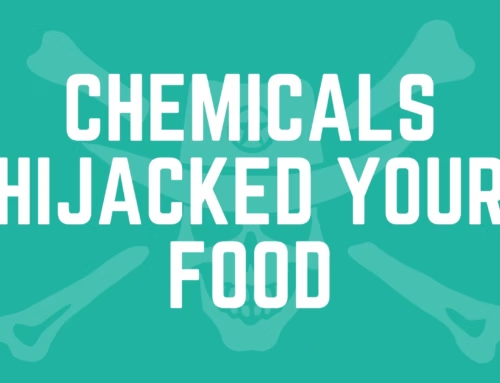How Processed Meats Contribute to Chronic Inflammation
What Are Processed Meats?
Processed meats include bacon, sausage, hot dogs, ham, pepperoni, jerky, and deli slices. These products are preserved through curing, salting, smoking, fermenting, or chemical additives—techniques designed to extend shelf life and enhance flavor.
They’re quick. Convenient. Familiar. For many people, grabbing bacon, sausage, or deli meat is just a routine part of the week—especially when time is tight. But we’ve gotten used to prioritizing ease over impact, and processed meats are one of the clearest examples of where that trade-off can hurt your long-term health.
Slowing down and thinking about what you’re actually eating—what’s added to it, how it’s cooked, and how often it shows up on your plate—can help you make smarter choices. Whether that means finding better substitutes or simply cutting back, being intentional makes all the difference.
Why Processing Creates Inflammatory Compounds
- Advanced Glycation End Products (AGEs):AGEs are toxic compounds formed when proteins or fats combine with sugars during high-heat cooking—especially grilling, smoking, or frying. They accelerate tissue aging and increase oxidative stress, which sets off inflammatory pathways in the body.
- Nitrosamines:These harmful compounds are created when nitrites in processed meat react with heat during cooking. Nitrosamines damage cells, promote inflammation, and are strongly associated with cancer development.
- Nitrates, Nitrites, and Nitrosamines:Nitrates and nitrites are commonly added to processed meats to preserve shelf life, enhance flavor, and create that bright pink hue. But when cooked at high temperatures—especially frying or grilling—they can form nitrosamines, compounds that damage DNA, trigger oxidative stress, and promote chronic inflammation in the body.Worth noting: Multiple independent studies have linked regular consumption of processed meats to increased risk of colorectal, stomach, and pancreatic cancers. A 2012 meta-analysis in the British Journal of Cancer found a significant association with pancreatic cancer, while another in the Journal of the National Cancer Institute tied processed meat intake to stomach cancer. These risks appear to rise with frequency and long-term exposure.Even products labeled “no nitrates or nitrites added” often use celery powder—a natural nitrate source that behaves the same way in your body. It’s a labeling loophole, not a health fix.Sources: Larsson & Wolk, 2012; Cross et al., 2007
- Preservative Overload:Beyond nitrates, processed meats are packed with additives like sodium, phosphates, and flavor enhancers. These disrupt gut health, increase blood pressure, and contribute to the chronic inflammation that underlies many modern health issues.
Health Risks of Regular Consumption
These aren’t just vague correlations. Decades of research point to very real risks from frequent consumption of processed meats. Here’s what that looks like in your body over time:
- Elevated Inflammation Markers:Regular intake can raise C-reactive protein (CRP) and interleukin-6 (IL-6), both of which are associated with autoimmune issues, chronic fatigue, and joint pain.
- Digestive Tract Cancers (Including Pancreatic):Independent studies have linked processed meat intake to colorectal, stomach, and pancreatic cancers. Nitrosamines formed during cooking appear to play a central role in this risk.
- Accelerated Inflammation and Cellular Aging:Prolonged intake increases oxidative stress and raises chronic inflammation markers, weakening your immune system and making it harder for your body to repair itself over time.
- Insulin Resistance and Metabolic Syndrome:Processed meats are often high in saturated fat and sodium, which can impair glucose metabolism and increase your risk for diabetes and obesity—two key drivers of inflammation.
- Cardiovascular Disease:High sodium, inflammatory fat profiles, and chemical additives put extra strain on the heart and blood vessels, increasing your risk of high blood pressure, atherosclerosis, and stroke.
Healthier Protein Alternatives
- Grass-fed, unprocessed cuts: Choose fresh cuts of beef, chicken, or turkey without preservatives or artificial flavoring. These contain natural fats and nutrients without inflammatory additives.
- Wild-caught fish: Salmon, sardines, and mackerel are rich in omega-3 fatty acids, which actively reduce inflammation and support brain, joint, and heart health.
- Legumes and beans: Lentils, black beans, and chickpeas provide plant-based protein, gut-supporting fiber, and anti-inflammatory polyphenols—making them a great meatless option.
Practical Tips
- Use bacon or sausage as an occasional flavor boost—like crumbling it over a salad—instead of making it the main course.
- Choose nitrate/nitrite-free deli meats, or better yet, roast your own turkey or chicken and slice it for sandwiches.
- Plan meatless meals 2–3 times per week using lentils, quinoa, or tofu as your main protein.
- Grill or bake instead of pan-frying or charring meats, and avoid blackened edges that contain the most AGEs.
- Be realistic: processed meats are hard to avoid entirely. If you can’t replace it, reduce it—use smaller portions, space out consumption, and balance it with fresh veggies and anti-inflammatory foods.
Conclusion
Processed meats may be convenient, but their long-term impact isn’t worth the trade-off. Limiting your intake helps lower your risk of cancer, heart disease, and inflammation-related fatigue. And when your body feels better, you can do more of what you love—whether that’s hiking, working, or simply enjoying time with your family.
At The Jolly Outlaw, we’re big believers in staying strong for the long haul—and that starts with what you put on your plate.
FAQ
Are nitrite-free deli meats safe?
They’re a step in the right direction, but many use celery powder, which contains naturally occurring nitrates. The result is similar—so moderation is still important.
What about jerky?
Many commercial jerkies are high in sodium, sugar, and preservatives. Look for minimally processed brands with clean ingredients—or try making your own at home.





